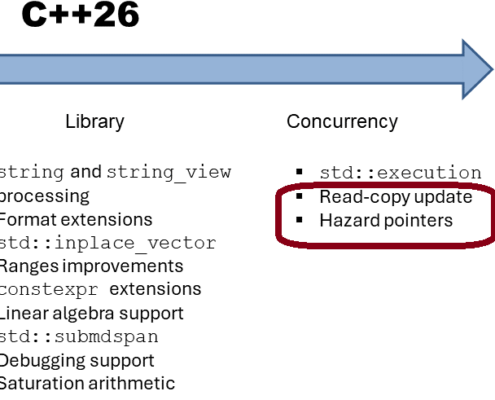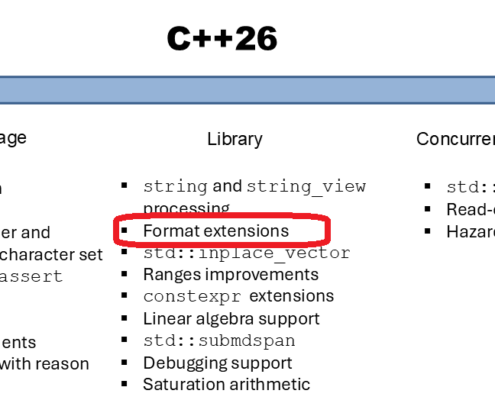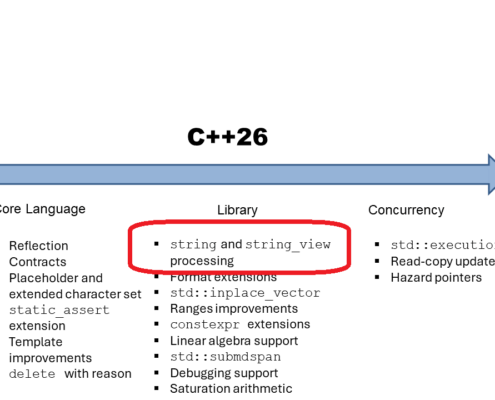
A Lock-Free Stack: A Hazard Pointer Implementation Explained II
In my last post, I started to explain a hazard pointer implementation: A Lock-Free Stack: A Hazard Pointer…

A Lock-Free Stack: A Hazard Pointer Implementation Explained I
In my last post, I presented a hazard pointer implementation: A Lock-Free Stack: A Hazard Pointer Implementation.…

A Lock-Free Stack: A Hazard Pointer Implementation
Hazard Pointers solve all issues of the previous implementation: A Lock-Free Stack: A Simple Garbage…

A Lock-Free Stack: A Simple Garbage Collector
My next lock-free stack includes a simple garbage collector.
I discussed the concurrent execution…

A Lock-Free Stack: Atomic Smart Pointer
The easiest way to solve this memory leak issue from the last post is to use a std::shared_ptr.
Atomic…

A Lock-Free Stack: A Complete Implementation
My last lock-free stack implementation was incomplete. It only supported push operations. Let's change…

A Lock-Free Stack: A Simplified Implementation
Today, I continue my mini story about lock-free data structures.
General Considerations
From…

Deferred Reclamation in C++26: Read-Copy Update and Hazard Pointers
Before I dive into lock-free programming, there's a little bit of theory necessary.
A common…

std::format Extension
Displaying the address of an arbitrary pointer in C++ 20 fails but succeeds with C++26.
C++20
Only…

C++26 Library: string and string_view Processing
C++26 offers many small improvements around strings and string_views.
First of all: What is…
